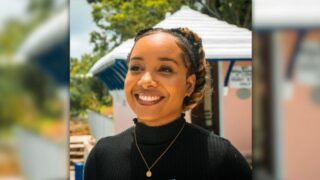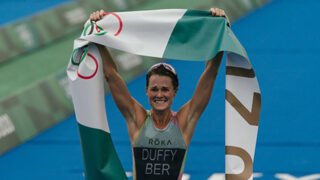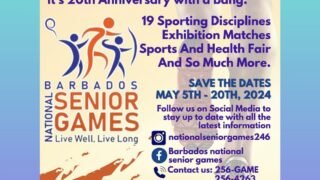
Reparations engaging the attention of CANOC
Keith Joseph, President of the Caribbean Association of National Olympic Committees (CANOC), has urged sports administrators throughout the Caribbean to engage in discussions about reparations.

Mr. Joseph’s comments followed a presentation by Jasmine Mickens from the Open Society Foundations. In her presentation on the topic of Caribbean Reparative Justice and the Prominent Role of Caribbean Sport, she lamented that the global African community continues to suffer from the enduring legacies of slavery, colonialism, and apartheid, and many black athletes lack a strong sense of history or mission. Ms. Mickens said this legacy is evident in the present economic, environmental, political, social, cultural, and psychological conditions that exist, and in sports.

Using cricket as an example, she explained that although blacks were not initially allowed to play, they were eventually integrated into the game. Cricket became an arena where enslaved people could confront their enslavers as equals and even demonstrate their superiority. However, Mickens also observed that a division of labour followed the lines of race and class on the cricket field, where the batsmanship was reserved for white players, while the fast bowling and outfielding were reserved for the labourers.
Reflecting on that, she praised the late Sir Learie Constantine for mastering every aspect of the game – bowling, batting, and fielding, and challenging apartheid by being very aggressive, creative and artistic in his approach. Ms. Mickens also highlighted George Headley, who led the West Indies to their first-ever victory over England. She said these individuals represent pride and unity and made a political statement of liberty and sovereignty through their playing.
During the conversation, she also mentioned the Cricket Research Centre at The University of the West Indies and praised the work carried out there. She said that establishing a place to train the next generation of cricketers is an excellent idea. Mickens also proposed that similar approaches could be used in other sports to help modern athletes address their historical blind spots.
Post Views: 81










